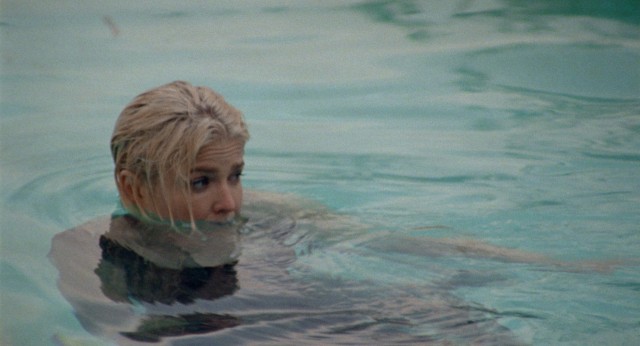From revenge porn to identity theft and cyberbullying, the ways in which social media has been used to exploit and hurt individuals have been well documented, with headlines about teenage suicide shining the spotlight on some of the most harrowing consequences. But what about those less newsworthy, everyday instances where cyberspace serves as a filter that enables a disconnect from human empathy? Where people’s behaviour is reduced to ‘good content’, that’s laughed at and ridiculed for the sake of a few shares and likes.
Directed by Edgar Morais and Lucas Elliot Eberl, We Won’t Forget delves into the topic with remarkable restraint, avoiding sensationalism of any kind. Rather than explicitly exposing our obsessive relationship with phones and social media, the fourteen-minute drama barely features these tools and instead focuses on the human behaviour that is a result of our interaction with them. Grounded by a captivating lead performance by Whitney Able, who co-wrote the film with Morais and Eberl, We Won’t Forget is an increasingly uncomfortable watch, the nuances of which are so subtle they could easily be missed. By using efficient storytelling and clever editing, the directorial duo have harnessed the subjective power of film to a level that invites a quiet self-reflection on the price we pay for the instant gratification social media provides.
“We wanted to create a scenario that could feel like the physical manifestation of predatory social media algorithms in the real world”
The film starts off with a group of hipster thirty-somethings at a house party. Everything appears normal as we float from one room to the next, catching random snippets of various conversations, and spot the hostess chatting pleasantly with her guests. She seems perfectly at ease amongst them, until we notice her smile fading away, replaced with a thoughtful expression and a distant look in her eyes. As time goes by, her mood and behaviour start to change and she becomes more erratic and out of control, all to the amusement of those around her – who appear more interested in capturing this episode on their phones rather than helping her through it.
“We wrote this film together with our lead actress, Whitney Able” – Morais and Eberl shared with S/W – “We were interested in a character whose feelings are bottled up and suppressed and in how social media can create an incentive for exploitation that can be more attractive than and/or override the sanctity of real-life friendships. We wanted to create a scenario that could feel like the physical manifestation of predatory social media algorithms in the real world.”

Whitney Able as We Wont Forget’s lead character – a woman in the midst of a “public freak-out”
The film utilises very few of the conventional storytelling tools and filmmaking techniques to deliver its message. Instead of music, it’s scored with the private conversations of the guests. There isn’t a cohesive dialogue or storyline as such, as we never linger in the same place for long enough to piece a narrative together. The camera is forever struggling to keep still, its shaky movements and grainy, soft-focus mirroring the lead character’s loss of composure. We don’t even figure out the reason why she gets upset in the first place. Whereas another film would undoubtedly allude to a failed relationship for instance, or at the very least include a scene where she downs a few shots or takes drugs, in We Won’t Forget these details are purposely omitted.
This efficient filmmaking points the audience’s attention towards what’s truly important, forcing us to use our own judgement about what is right or wrong about the way these characters are acting, without being distracted by superfluous details. The guests’ mixed reactions to their friend’s obvious emotional distress – some are worried, others are amused, some are excited and others just seem indifferent – is equally alarming and relatable. Furthermore, by ending on a quiet, minimalist note, Morais and Eberl pose the question – how would we react? Because the unsteady, observational camera listening in on the conversations and witnessing all that unfolds is meant to be us, and that deeply unsettling feeling is what we’re meant to remember.

 Serafima Serafimova
Serafima Serafimova